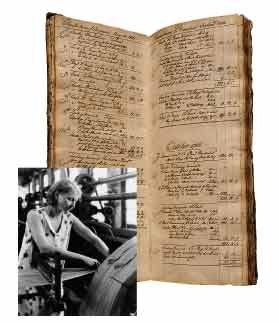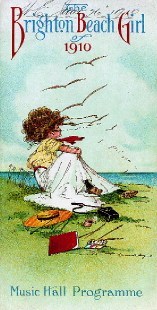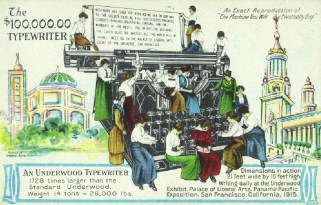When Harvard Business School's Baker Library amassed the bulk of its manuscript collection in the first half of the twentieth century, curators were mostly interested in big businesses and well-known industrialists. "Search aids and cataloging records did not distinguish materials made by or about women," notes Laura Cochrane, "because gender was not a compelling issue for early twentieth-century historians."
Cochrane was survey archivist for the library's "Women in Business" project, a just-completed, three-year undertaking to search the collection for material concerning women, to listen to voices unheard by earlier generations of librarians and scholars. In fact, writes the project manager, Clara Bouricius, "women have played an integral role in American business and economic history from the very beginning as workers, entrepreneurs, record keepers, business and property owners, and investors." The survey's abundant discoveries are described in an innovative, web-based guide to be launched this January. Go to www.library.hbs.edu/hc/wes for "Women, Enterprise, and Society: A Guide to Resources." An exhibition by that name may be seen at the library through June 14.
 |
| A plantation daybook showing fees received from 1761 to 1781 for the loan of women slaves, the book later used to record payments for silk woven by Rhode Island women. Inset: 1933 photograph by Lewis Hine of a cotton warper at Shelton Looms in Connecticut. |
| Photographs by Widener Imaging Services, courtesy Baker Library Historical Collections |
The survey turned up a wealth of diaries and letters by women, and drier but revealing records such as account books, credit reports, and payrolls, as well as advertising ephemera and photographs, all attesting to the long-overlooked economic contribution of the distaff side. Bouricius quotes Frederick Tudor--known in Boston as the Ice King because he made his fortune selling it--writing in 1820 and expressing a conventional wisdom that persisted well into the twentieth century. "[O]ur ladies know nothing of the sober certainties which relate to money and they cannot be taught." At least he understood the economic importance of ice.
 |
| A 1910 playbill catering to the independent, working New Woman |
 |
| An advertising postcard of the Underwood Company, 1915 |
| Photographs by Widener Imaging Services, courtesy Baker Library Historical Collections |





